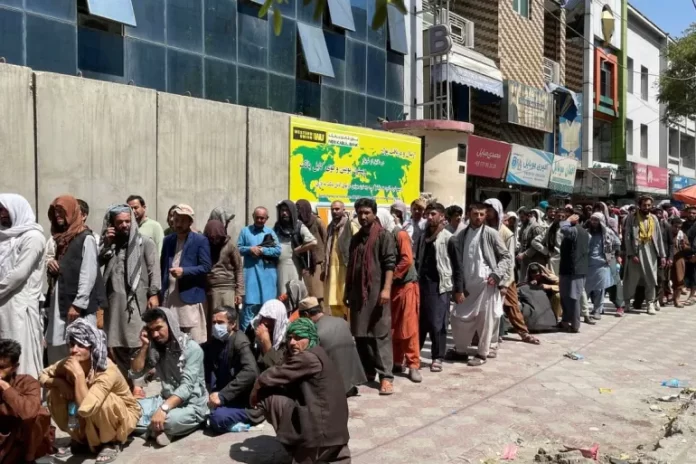Nearly all Afghan citizens endure impoverished living conditions, and millions require urgent aid to survive, with six million children facing famine. Insufficient funding and the Taliban’s repressive policies pose immense challenges to aid delivery, necessitating a delicate balance between providing assistance and addressing human rights violations.
While the world only looks at the Taliban as a hardliner group pushing their country into regression, Afghanistan remains ensnared in one of the world’s most devastating humanitarian crises. In the words of UN Secretary-General Antonio Guterres, “The gravity of the situation in Afghanistan is of immense significance and should not be underestimated. Presently, it represents the most substantial humanitarian crisis globally. Nearly all Afghan citizens, amounting to ninety-seven percent, endure impoverished living conditions. Moreover, a significant portion of the population, totaling twenty-eight million people, will require humanitarian aid in order to survive this year. Among them, six million Afghan children, women, and men are on the brink of experiencing conditions resembling famine. Concurrently, financial support for addressing this crisis is rapidly diminishing.”
The United Nations’ Humanitarian Response Plan, which seeks $4.6 billion in funding, has received an inadequate amount of $294 million, equivalent to a mere 6.4 percent of the total funds required. Shockingly, two-thirds of the population struggles with food insecurity, thrusting 875,000 children into the clutches of acute malnutrition. Moreover, the plight of women and girls exacerbates the dire circumstances. This ongoing crisis has thrust the United Nations into a delicate balancing act. On one hand, they must ensure aid reaches those in desperate need, while on the other, they must apply relentless pressure on the Taliban to halt their abhorrent human rights violations.
The initial crisis erupted when international aid abruptly dwindled after the Taliban’s takeover in August 2021. However, the situation has spiraled further into darkness as the Taliban’s repressive policies take hold. Shockingly, they have banned women from working with UN agencies and non-governmental organizations. Now, humanitarian aid groups find themselves treading treacherous waters, striving to deliver vital assistance without inadvertently endorsing the Taliban’s abusive mandates. In these challenging times, mere hashtag campaigns fall short. Aid workers, driven by the humanitarian imperative to save lives while upholding principles of neutrality and impartiality, face an uphill battle.
For years, humanitarian organizations in Afghanistan have relied on operational flexibility to maneuver through obstacles, whether it meant negotiating front lines or supporting girls’ schools in the face of adversity. However, recent UN statements have stirred confusion and accusations of inconsistency among their agencies. The situation worsens as some agencies allow men to continue their work while restricting the participation of women. While acknowledging the need for local adaptability, it is crucial for key agency leaders like the World Food Programme and UNICEF to take a firm stand, declaring that the Taliban’s actions violate international human rights law and the UN Charter.
During a recent meeting of UN special envoys in Doha, a consensus emerged to sustain engagement with the Taliban without formally recognizing them until progress is made on human rights. While some Afghan civil society groups reject any form of engagement, others view it as a necessary step to alleviate the economic crisis.
However, the success of these efforts could be undermined if the critical issue of humanitarian funding is not addressed. A significant reduction in aid would result in an increased risk of deeper poverty and hunger for countless Afghans, thereby prolonging their suffering.
Without sufficient resources, the country’s ability to provide necessities and create a sustainable future for its people would be severely compromised. It is imperative that international donors recognize the significance of continued humanitarian assistance to prevent a devastating setback in Afghanistan’s recovery and to alleviate the hardships faced by its population.
Reference: Human Rights Watch and UN




